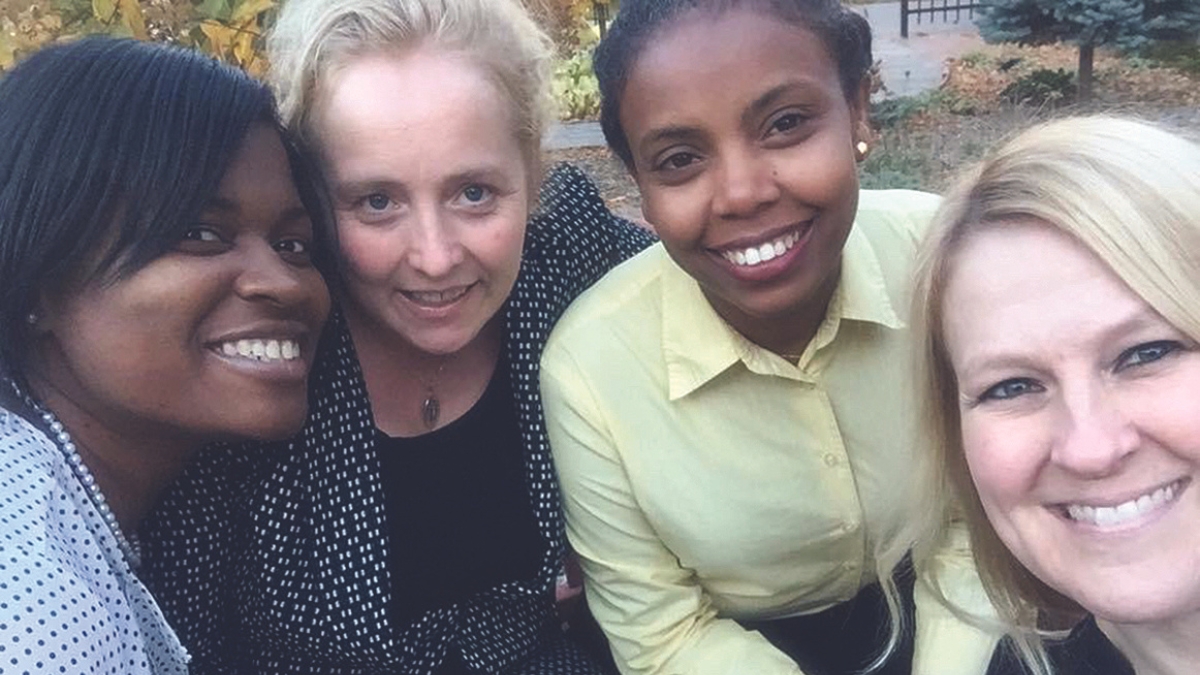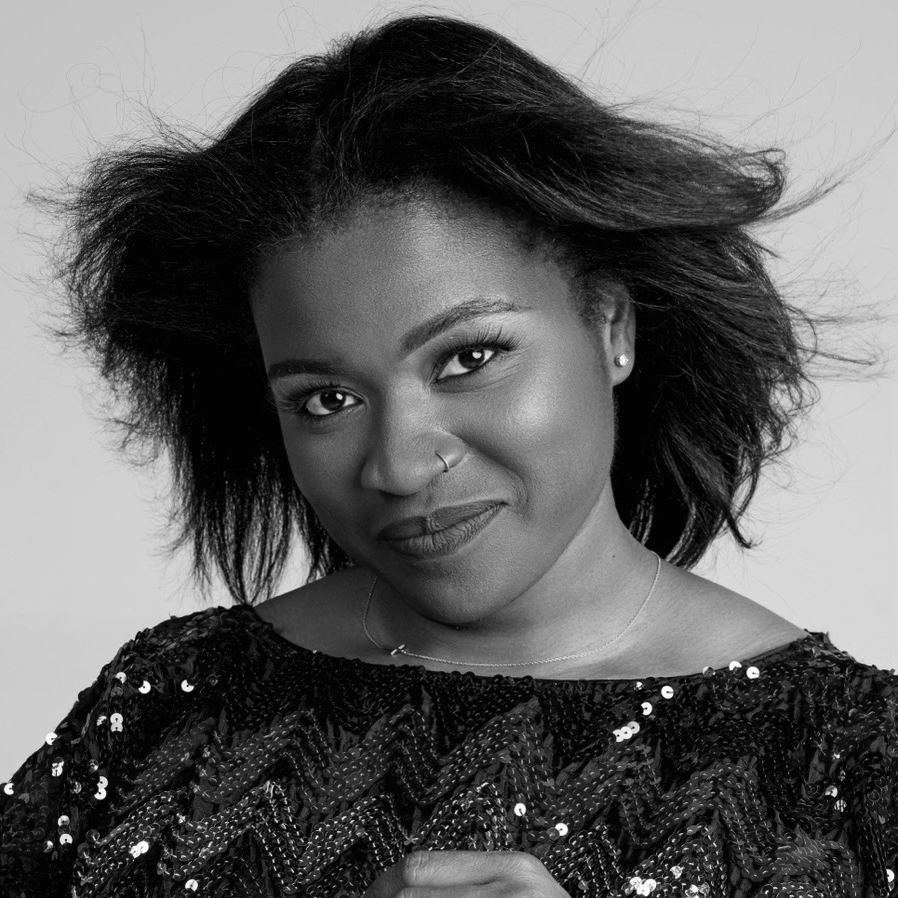Lessons on Mourning from the Book of Ruth
My husband and I have bounced around a bit doing ministry in the Covenant. One of our early stops was St. Paul, Minnesota, where I was a pastoral intern and my husband was a part-time youth pastor while also directing the church’s nonprofit. During that time, I ended up doing Clinical Pastoral Education (CPE) as I pursued a degree through North Park Theological Seminary.
CPE is part of the training to become a chaplain, but I had no interest in completing it. As far as I was concerned, only old white men were chaplains. At the time, I was a young and obviously Black woman. This was not for me. “Why is this a requirement anyway?” I asked. Having completed CPE himself, my husband kept saying, “Brandi, please. Just take this seriously.” I thought, Fine, whatever.
I became part of the spiritual care team at United Hospital in St. Paul. Following an incredible CPE experience, I was offered a spot in the residency program at the same hospital. For my entire residency, I was assigned to the Mother Baby Center, the birth center. It was such a special assignment. Who doesn’t like babies and mommies?
But at the time, my husband and I were suffering from infertility. By the time we relocated to St. Paul from Chicago, we had been married about three years and had suffered five pregnancy losses. I had had three miscarriages, and my body had also suffered two ruptured ectopic pregnancies. Both almost ended my life. Following those losses, I was left without fallopian tubes. We started researching fertility treatments, but neither of us had medical insurance that would cover the procedures we needed, nor could we afford such an expense. We found ourselves in an incredibly hopeless situation.
In the Old Testament book of Ruth, our sister Naomi also found herself in an incredibly hopeless situation. Her husband died. Her two sons died. Naomi was left with nothing. By the end of chapter one, Naomi had lost all that she had and was in despair.
So, while grieving my own pregnancy loss and inability to conceive, I was working in the Mother Baby Center. Day in and day out, it was my job to walk around to rooms congratulating moms and families, baptizing babies, comforting moms on bedrest, and praying with families.
I have learned that sometimes in our mourning, in our pain—we have to go to work. Sometimes, even though every bone in our body aches to just ball up and pull the covers over our heads—we have to go to work. We preach, we clean house, we worship, we take care of our kids. We gotta do what we gotta do.
The book of Ruth shows me what this looks like. Naomi’s daughter-in-law Ruth was out there doing what she had to do. When her husband died, she traveled to Bethlehem with her mother-in-law. Ruth left her family and her native land to follow Naomi.
The two women were destitute. There was no husband to provide for them, no help, no public aid office, no nonprofit set up to aid widows and foreigners. So when they got to Israel, Ruth went to work. She went out into the fields to glean for food. She got up and went to work. All day long she gleaned in the field. She did not stop until it was time for all the workers to stop. She worked from sunup to sundown.
Sometimes in our sadness, we have to go to work.
Another important part of my role at the hospital was to mourn with families who had suffered losses. It is not all happy stories in the Mother Baby Center. I prayed and cried with numerous families over the loss of a child, the loss of a dream, a part of their heart.

During my training, I learned that the job of a chaplain also includes caring for the staff. Challenging patients and traumatic situations led me to spend time caring for my colleagues—holding space to sit or pray with them after a hard event or providing a care basket following a loss. In my own grief and suffering, my being in that space turned out to be a blessing to many, including myself.
In my pain, God was moving. I could never have imagined that it would be good to be assigned to a unit where I would constantly be in the presence of birth and loss—fully involved in both the celebrating and the mourning. I met so many amazing moms and families. I held So. Many. Babies. I cried happy tears with moms with whom I had spent weeks or even months at their bedside awaiting their tiny miracle. I cried tears of sorrow with moms as I prayed over their bodies as they labored to bring babies into this world who they’d never get the opportunity to watch grow up. I made space for other faith traditions to mourn and celebrate in ways that honored them. I prayed over the rooms in the unit that were dedicated to loss.
I wonder if Ruth imagined being a widow and leaving the only home she’d known to follow her mother-in-law? I wonder if she knew that once they arrived in Bethlehem she’d have to find food for them to eat? We read clearly that Naomi was hopeless, that she changed her name to Mara, which means bitter. But what about Ruth?
In my personal life at the time, I knew no one who had dealt with infertility. I felt alone. It was at the bedside of my patients that I found comfort and hope. They shared their hearts with me. I learned about different fertility treatments and witnessed success stories. I held and baptized babies conceived through in vitro fertilization (IVF).
Another thing that was not common in my personal life was families with children several years apart. I had already given birth to my daughter, Sarabi. She was getting older, and I feared what it would be like to have children so many years apart if we ever did have a successful pregnancy.
One day I walked into the room of a new patient that it was full of people. I asked my patient who everyone was, and she shared that these were her children. I couldn’t believe it. There were high schoolers and preschoolers, and some in between. These could not be her children! I told her a bit about my story and asked her how it all worked out. She assured me that if God blessed me with a baby, Sarabi would be the best big sister in the world. She shared how well her kids loved one another and even played together despite their age differences.
When Ruth walked onto Boaz’s field, she only hoped to be able to provide food for herself and Naomi. What she found, however, was the hand of God surprising her with blessing on top of blessing on top of blessing. While Ruth only hoped to gather the scraps the reapers left behind, what she found was the favor of the Lord. Boaz provided Ruth more food than she expected, safety and water in the field, kindness, and even a prayer of blessing.
My time as a chaplain at the Mother Baby Center was God’s doing. It filled me with joy as I was able to be present with families, and it gave me hope for my future. It didn’t mean I left that role certain that God would provide us a baby. But I left that role sure that God would provide—exceedingly, abundantly, above all we could ask or think.
When Naomi saw the hand of God providing for her and for Ruth, she moved from despair to hope. Emptiness was being filled. And the old widow, our sister Naomi, who recognized the hand of God in her circumstances, praised our God.














